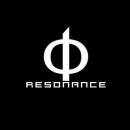Australia escribió:
Yo no tengo clara la justificación moral
vagar escribió:
Hay muchos casos en los que la "licencia de por vida" lleva a casos manifiestamente injustos, como las compañías que quiebran o son absorbidas por otras, o un compositor que muere en un accidente de tráfico una semana después de comprarse la integral de Spitfire y la familia no puede revenderla.
Yo la justificación moral la veo más clara por varias razones. La primera, porque salvo algunos casos, las librerías son algo que el consumidor compra totalmente a ciegas, dado que casi ninguna compañía tiene demos totalmente funcionales o un plazo de prueba, etc. Lo normal es que compremos la librería por haber escuchado las demos, que sería un poco como comprar un producto viendo el anuncio en la tele.
Por otro lado, por casos como los que indica Vagar (que son bastante frecuentes), no el de la muerte del compositor (afortunadamente) sino casos en que la compañía cesa su actividad o es absorbida, y donde el usuario se queda "en bragas", sin soporte, sin actualizaciones para los nuevos sistemas operativos, etc. Y sigue estando sujeto por su EULA, aunque la compañía no exista (!).
Y un tercer elemento, y es que Eric Persing en lo que escribe menciona a Sting y a Lady Gaga, y la verdad es que los usuarios y compradores de librerías son en un 99% amateurs, gente que tiene la música como hobby, semiprofesionales que obtienen pocos ingresos de la música, etc. Es decir, que el argumento de que Sting puede hacer cuatro discos de éxito con una librería de loops de 99$ es falaz. El 99% de los usuarios de esa librería no obtienen ganancias económicas significativas y por lo tanto ese argumento implica tomar un caso muy, muy particular para justificar todos los casos. Se le podría contra-argumentar a Eric que por cada Sting que ha comprado su librería, hay miles y miles de anónimos que la han comprado también y no han obtenido ningún beneficio. El mismo lo dice, que si tuviera que permitir la reventa de Sting a Lady Gaga, tendría que subir tanto los precios de sus instrumentos virtuales que probablemente cesaría su negocio (y entendiéndole como le entiendo y además siendo una persona que admiro, no deja de ser verdad que es un poco querer quedarse con el pollo y las patatas: la vendo barata para vender miles de unidades a amateurs en lugar de decenas para superpros y así mantener mi compañía a flote, pero no permito la reventa por si me la compra Sting y lo peta con un loop).
Por estas razones creo que sería lo suyo que los desarrolladores permitieran al menos una reventa, para que si alguien compra una librería a ciegas y luego, por el motivo que sea, no le sirve, no le encaja en su manera de trabajar, o no le gusta, puediera revenderla al menos una vez por una fracción de su precio. No creo que una reventa sea una venta perdida, salvo en muy pocos casos, y permitir la reventa, al margen de los aspectos legales de los samples (grises) sería básicamente un buen servicio al cliente. ProjectSam permite la reventa, VSL permite la reventa, Steinberg permite la reventa, NI permite la reventa, y no son pequeños precisamente...
También es verdad que muchos desarrolladores pequeños, escribiéndoles un correo y explicando las cosas, me consta que frecuentemente ofrecen alguna buena solución para sus clientes, eso también es verdad.







